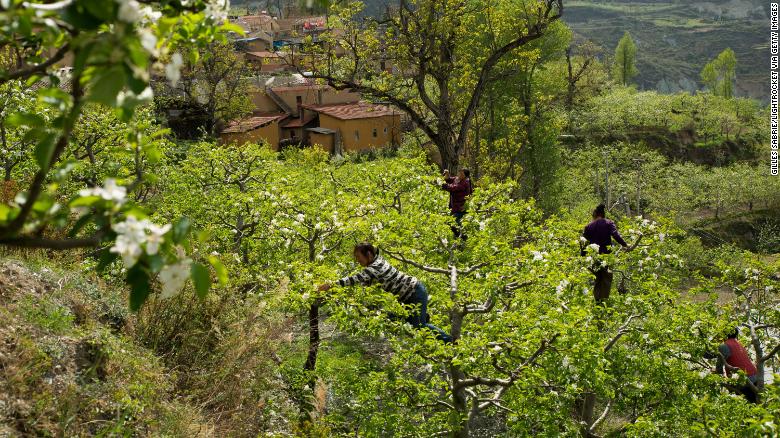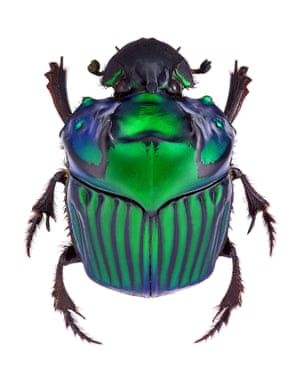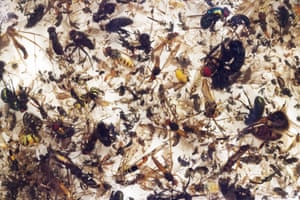“The insect apocalypse is coming. Here’s what you can do about it”

https://edition.cnn.com/2019/11/13/europe/insect-apocalypse-report-scn/index.html
It’s being called the unnoticed apocalypse: The number of insects is declining rapidly and 41% of bug species face extinction, scientists say.
“China Drone Attack on Crop-Eating ‘Monster’ Shows 98% Kill Rate”

An army of drones deployed to fight a crop-devouring pest in a southern area of China has recorded a mortality rate of as high as 98%, according to the manufacturer.
“Urban bees are living healthier lives than rural bees”

https://qz.com/1365290/cities-could-save-the-bees-theyre-healthier-than-farm-bees/
Research published in the Royal Society B found that bumblebees living in urban areas experience healthier lives than their counterparts in rural habitats. Their colonies are larger, better fed, and less prone to disease. Urban colonies also survive longer than their country cousins.
“‘A different dimension of loss’: inside the great insect die-off”

Scientists have identified 2 million species of living things. No one knows how many more are out there, and tens of thousands may be vanishing before we have even had a chance to encounter them.
“UK will back total ban on bee-harming pesticides, Michael Gove reveals”

The decision reverses the government’s previous position and is justified by recent new evidence showing neonicotinoids have contaminated the whole landscape and cause damage to colonies of bees. It also follows the revelation that 75% of all flying insects have disappeared in Germany and probably much further afield, a discovery Gove said had shocked him.
“Warning of ‘ecological Armageddon’ after dramatic plunge in insect numbers”

The abundance of flying insects has plunged by three-quarters over the past 25 years, according to a new study that has shocked scientists.
“3M honeybees killed by insecticide spray targeting Zika mosquitoes in S.C.”

More than 3 million honeybees were killed in South Carolina after the aerial spraying of an insecticide targeting mosquitoes that could carry the Zika virus.
“Insecticides put world food supplies at risk, say scientists”
The world’s most widely used insecticides have contaminated the environment across the planet so pervasively that global food production is at risk, according to a comprehensive scientific assessment of the chemicals’ impacts.
Billions of dollars’ worth of the potent and long-lasting neurotoxins are sold every year but regulations have failed to prevent the poisoning of almost all habitats, the international team of scientists concluded in the most detailed study yet. As a result, they say, creatures essential to global food production – from bees to earthworms – are likely to be suffering grave harm and the chemicals must be phased out.
It’s a dangerous cycle when trying to increase crop yields, farmers have put the whole food supply at risk.
” When Humans Are Forced To Replace The Bees They Killed”
Since insecticides have killed most bees in China’s Sichuan province, local farmers are forced to fertilize the flowers themselves. But the “bee-men” may now be a dying breed.
According to the scientist, rapid wage growth could discourage farmers from resorting to hand-pollination. Travelling beekeepers renting out their bees could replace the “bee-men,” on the condition that residents accept to decrease their use of toxic agents.


Recent Comments